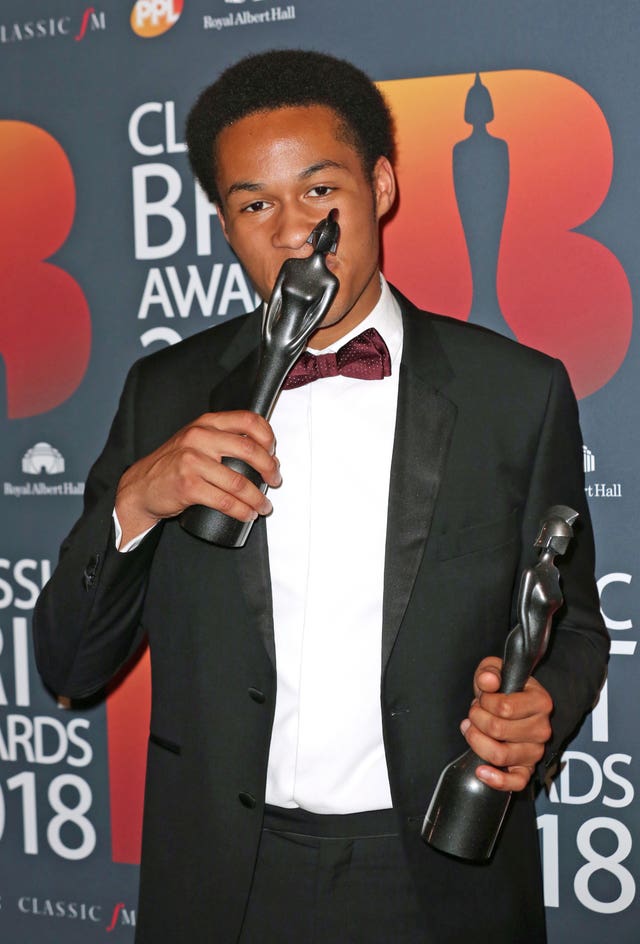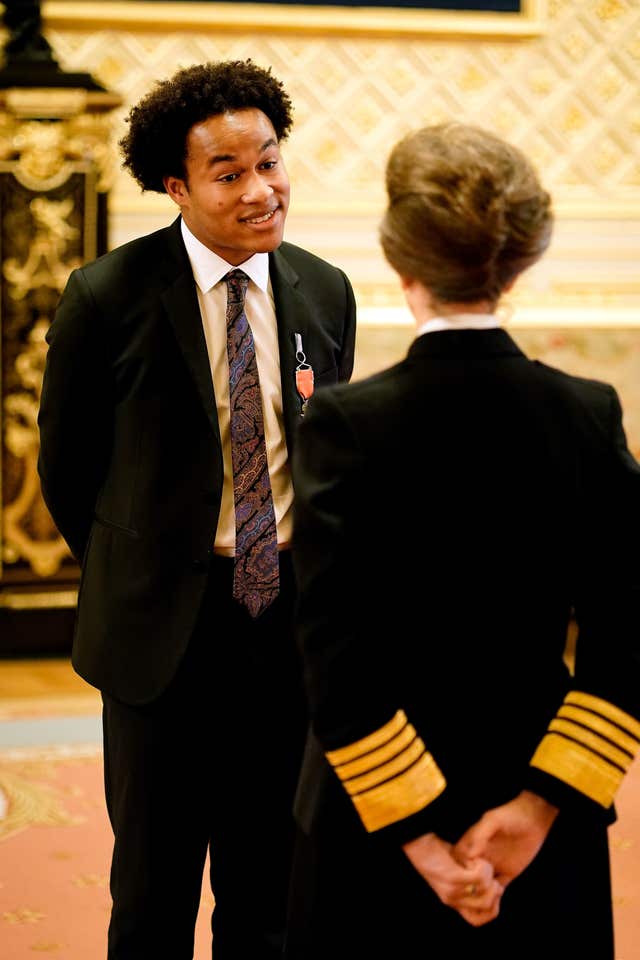Sheku Kanneh-Mason was ‘more nervous’ playing cello in lesson than royal wedding
The 24-year-old played at the marriage ceremony of the Duke and Duchess of Sussex in 2018.

Musician Sheku Kanneh-Mason has said he was “more nervous” about cello lessons than he was to play at the marriage ceremony of the Duke and Duchess of Sussex.
The 24-year-old from Nottingham, who won the BBC Young Musician 2016 award, was 19 years old when he played at St George’s Chapel in Windsor Castle during the couple’s wedding on May 19 2018.
Speaking to Lauren Laverne for BBC Radio 4’s Desert Island Discs, the cellist said: “I think at the time of performing, it felt like very much just playing to the people in the room.

“Of course, maybe somewhere I was aware of the fact that it’s broadcast around the world.”
He added: “I think in terms of nervousness, I’m more nervous for my cello lesson, because I know that my teacher listens in (a) certain way.
“I guess what I’m saying is, the audience, yeah, I’m grateful for them being there, but I don’t think who is there necessarily puts … more pressure (on it).”
The musician, who played at the BBC Proms last year, discussed the annual eight-week orchestral event, and whether the song Rule, Britannia! should be performed.
In 2020 the broadcaster said the tune would feature without lyrics, following controversy over its perceived historical links with colonialism and slavery.
However, in a U-turn the BBC announced, one day after Tim Davie took over as director-general, that the controversial piece of music would be sung.
Kanneh-Mason said: “I don’t think it should be included and I didn’t stay for that. That’s just my opinion.
“I think, maybe, some people don’t realise how uncomfortable a song like that can make a lot of people feel, even if it makes them feel good.

“I think that’s somehow a big misunderstanding about it.”
Kanneh-Mason also spoke about his experience as a young black classical music artist and said there are occasions he has not been “taken seriously”.
“Very often, in the spaces that I was in within classical music, myself and my family were very often the only black people in those places,” he said.
“Most of the time (it) was fine in the sense of I felt comfortable and all good but there was certainly occasions where my being black meant that I wasn’t necessarily taken seriously in some situations.
“And also outside, of course, outside of music.”
Speaking about the type of prejudice he has faced, he said: “I think it’s most often the subtler things, but yeah, sometimes, also much more.”
Asked how he has dealt with this, he said: “What gave me the strength in those situations is, we would spend a lot of time as children watching documentaries of real black heroes succeeding and being challenged and overcoming.
“There was people like Muhammad Ali. I think they were certainly a source of inspiration.”
In 2023 an abusive message was directed at the BBC Proms X, formerly Twitter, account during his sister Isata’s performance at the event.
Asked about this, the cellist said: “The isolated incidents in the moment are offensive and affect you, but that’s something that one can deal with.
“But I think the long-term effects can be something that you are less aware of and (are) more difficult to deal with.
“How you view yourself and your how you’re valued and your confidence and how you feel that you fit into the world … it’s something that I have to think about and examine very often.”





